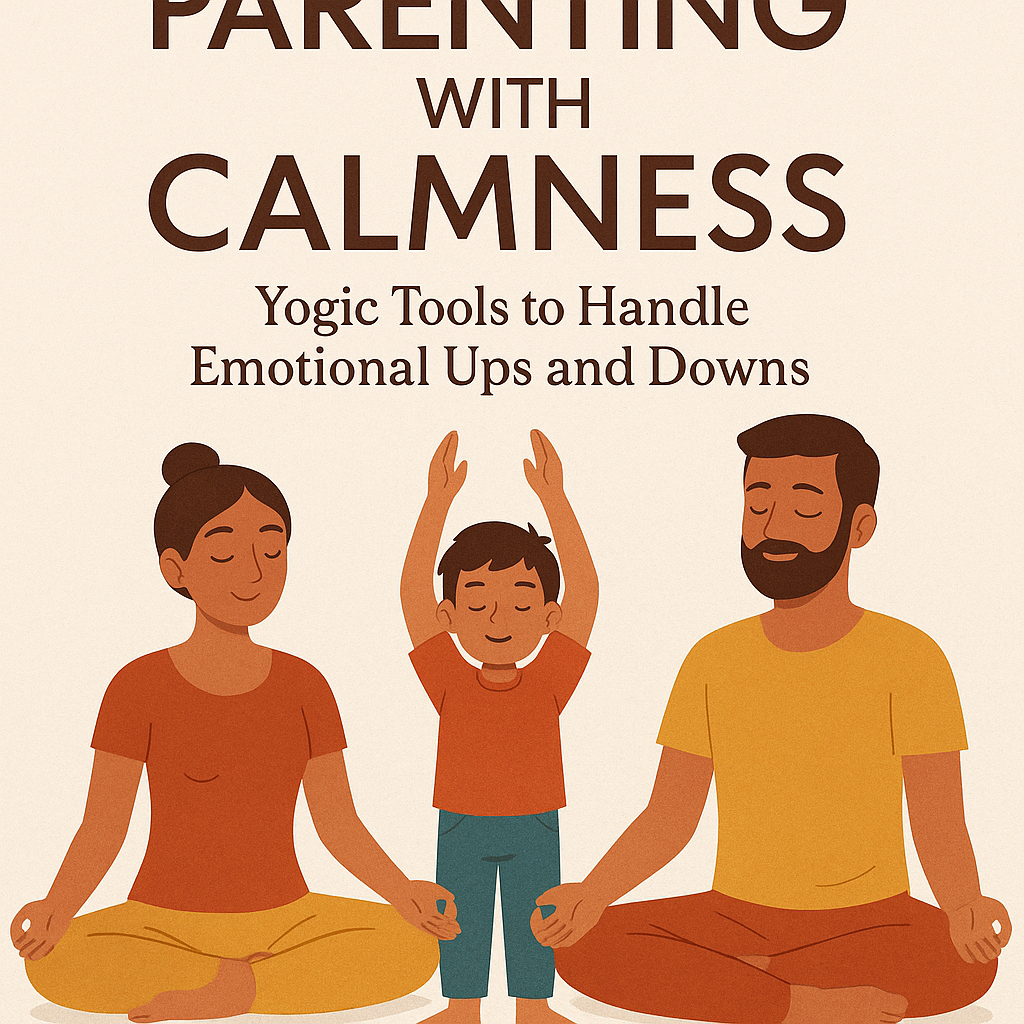Parenting with Calmness: Yogic Tools to Handle Emotional Ups and Downs

Parenting with Calmness: Yogic Tools to Handle Emotional Ups and Downs
Parenting is a beautiful journey but also an emotional rollercoaster. Yogic wisdom offers timeless tools to guide both parent and child with calmness, awareness, and connection.
Swadhyaya: Self-Study through Yogic Texts
Introduce your child to the Bhagavad Gita, Yoga Sutras, or simple stories from ancient scriptures. These are life manuals, not preachings — offering clarity, joy, and strength. Share one verse a day and discuss its meaning simply.
Pranayama (Breathwork) for Emotional Regulation
Light a diya oil-lamp, preferable with clarified butter ghee, chant together, express gratitude before meals. These moments create rhythm, anchoring children in peace and mindfulness
Daily Yogic Rituals that Create Stability
Just 3 minutes of belly breathing, Bhramari, or Anulom Vilom, can soothe strong emotions. Teach children to use breath as a pause-button when overwhelmed. Make it fun – do it before school or during study breaks.
Self-Love: A Yogic Practice, Not a Luxury
You cannot pour from an empty cup. Respect your own needs – practise yoga, take time off in quietness, do what you love, do not be too harsh on yourself. Children learn self-worth by observing it in you.
Asana & Playful Connection
Yoga with your child can be joyful. Try simple partner poses or join a family yoga workshop — build strength and bonds together.
Respond, Don’t React
Pause, breathe, and then speak—your calmness teaches more than your words. Use a soft tone instead of raised voices. Share stories or examples instead of scolding.
Early Morning & Bedtime Wisdom
Wake them with love, not loudness. Begin with a diya and affirmations like: “I am calm. I am strong.” After school, let them unwind silently. At night, chant together — soothing close to the day.
Daily Yogic Parenting Routine
|
Time |
Practice |
|---|---|
|
Early Morning |
Gently wake up; positive affirmations |
|
Before School |
Share a Gita verse (child-friendly) |
|
After School |
Greet, smile, hug. Ask about their day & listen fully |
|
Evening |
Light a diya, family chanting or singing |
|
Before Sleep |
Short mantra chanting, no screens |
|
Before all meals |
Gratitude prayer |
|
Before homework |
3-minute breathwork |
|
Holidays |
Yoga asana fun at home or Yoga workshops |
Article by Rashmi Kedia



